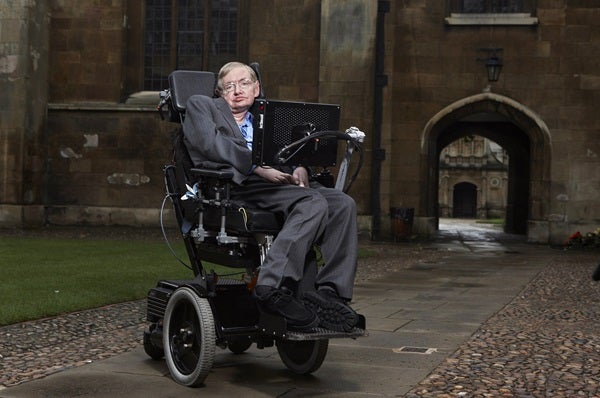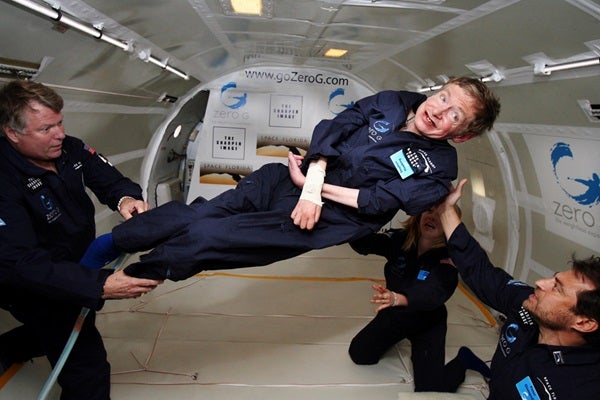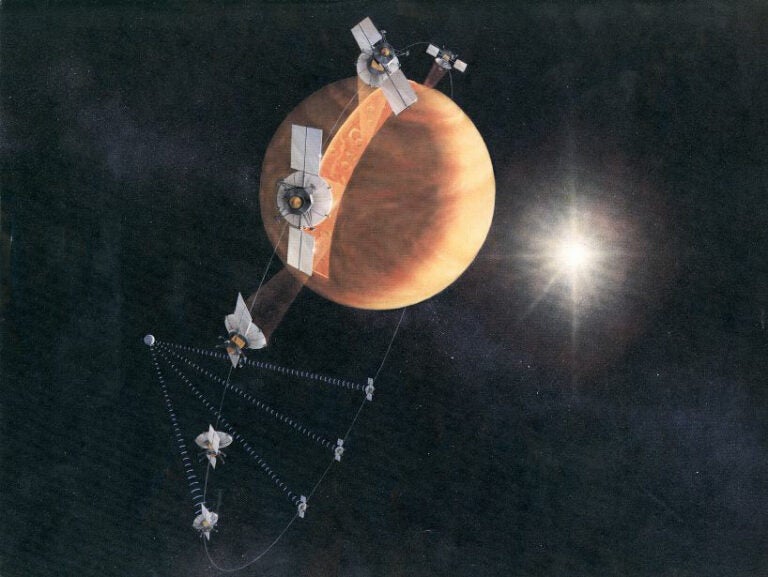Essentially a household name associated with his brilliance, Hawking became an icon with his wheelchair and computerized voice as the progression of ALS (amyotrophic lateral sclerosis), also known as Lou Gehrig’s disease, paralyzed nearly all of his body. Diagnosed at age 22 while he was a graduate student, Hawking was given only a few years to live. He bucked that estimate by more than five decades, and went on to hold the position of Lucasian Professor of Mathematics at the University of Cambridge — also famously held by Sir Isaac Newton — for 30 years.
Following his retirement from Cambridge, he served as director of research at the Institute for Theoretical Cosmology. Among his many other accomplishments and awards, Hawking received a Commander in the Most Excellent Order of the British Empire, as well as the United States’ Presidential Medal of Freedom. The 2014 film The Theory of Everything recounted much of his life, and his work was honored at the 2016 Starmus Festival in the Canary Islands, Spain.
Stephen Hawking was not only brilliant, but also personable, witty, and playful. His bets on the nature of black holes have become infamous, as has the related concept of Hawking radiation, in which black holes, thought of as intense machines from which nothing escapes, can actually “emit” particles.
Stephen Hawking became a public symbol of not only intelligence and scientific accomplishment, but also perseverance and levity in the face of a serious, progressive disease. He advanced our knowledge of the cosmos immensely and unabashedly shared his thoughts on the universe and his refusal to let a debilitating disease end his career or his enjoyment of life. Today, his friends, family, and the greater scientific community mourn his loss, as does a public that has, thanks to Hawking, become both more fascinated with and knowledgeable about the universe we all share.
Professor Hawking is also remembered in this video tribute by the Starmus Advisory Board.
 You can learn more about Stephen Hawking in our free downloadable eBook: The Life and Times of Stephen Hawking, which highlights this brilliant professor’s life and accomplishments.
You can learn more about Stephen Hawking in our free downloadable eBook: The Life and Times of Stephen Hawking, which highlights this brilliant professor’s life and accomplishments.










